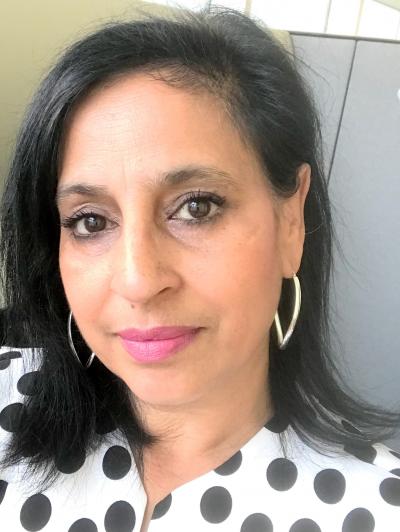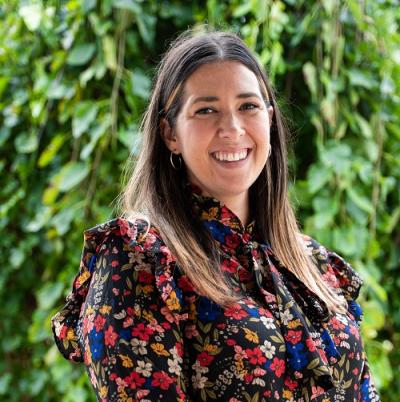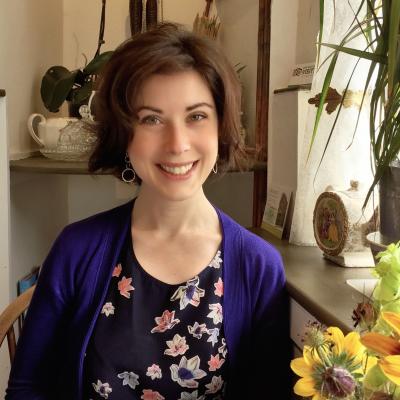
Born and raised in Bulgaria, Aleksandra Peychinova was already studying far from home at Saxion University in the Netherlands.
This spring, the International Business student’s studies took her to Toronto, even further from home.
She joined Humber College and the City of Toronto’s 2021 Global Systems Gap Challenge online. Her group was asked to choose an issue facing the City of Toronto and look at ways to improve it. While the focus was regional, she found some aspects to be universal.
“[We were] looking at the different systems as a whole and analyzing the gaps so those gaps could be filled with something more productive,” said Peychinova.
Her team focused on the effect of digital technology and e-learning on mental health, addiction and social growth among post-secondary students.
Just as important was their examination of who might be overlooked by social supports.
This is the challenge’s second year and it has grown even more diverse since 2020. More than 400 students from 32 countries participated in this year’s challenge to break down pressing urban issues and identify possible paths to solutions.
Mentors from Humber and the wider community helped guide students from 86 Humber programs and various academic partner institutions over six weeks.
International teams tackled arts and culture, economic development, health and wellness and social innovation in Toronto.
Humber and Toronto: the perfect pairing
The City of Toronto engages with various academic institutions to build partnerships “that take research from policy to practice,” according to Manjit Jheeta, the director of strategic partnerships at the City of Toronto.

"There has never been a more important time for us to come together as students, researchers, partners and policymakers to make a better world and see what our world looks like when everyone thrives,” she said.
The city hosted a workshop for the teams where staff from city divisions provided insight into the inner workings of Toronto.
At the end of the challenge, the teams presented their insights to a panel of city and industry experts.
“Staff can have a look at [those insights] and think about them as they approach these issues and think about where more research is needed. We’re hoping it will spark new interest or new approaches,” said Jheeta.
The Global Systems Gap Challenge’s 2021 programming was created based on lessons learned from the inaugural competition. This year, the process was more structured. Organizers added an onboarding week and worked with Humber’s Centre for Innovative Learning on developing accessible learning materials on new digital platforms.
“The partnership with the city brought it to a new level from a logistical standpoint. We were also able to put in some new systems, processes and timelines that made a significant difference,” said Rebecca Fitzgerald, the associate director of International Mobility and Strategic Partnerships at Humber College.
“By the end of the challenge, the participants took very complex issues and summarized the gaps in existing systems into something digestible and easy for someone to understand and leverage that information to make future decisions.”
Fitzgerald says the deeply personal reflections from participants on the skills and knowledge they acquired through the challenge were “overwhelming.”
A privilege to help
Humber Bachelor of Health Science – Workplace Health & Wellness student Michelle Ntiamoa felt it was a privilege to take a deep dive into an issue affecting so many people in the city. She participated in the challenge last year and was eager to do so again.
As a resident of the GTA, she looked at the impact of digital technology on students from a unique perspective after watching loved ones struggle to access digital supports. 
“I witnessed many of my peers and my own family members who really found the effects of e-technology to be a challenge,” said Ntiamoa.
Her ambition is to work in public health, where her systems thinking skills will be an asset.
“Simple things like language barriers, location and accessibility are all aspects that need to be taken into consideration when providing solutions, which is why I find this project so important, to be able to ensure accessible resources are created to help those in need,” said Ntiamoa.
Innovating from a global perspective
Global Systems Gap Challenge organizers identified three important facets of the challenge: team-building in diverse environments, intercultural development for students and faculty and building digital fluency and the ability to connect virtually.

“All of those coming together creates the perfect dynamic to show students and even mentors what it is to work in globally diverse teams. You can’t innovate the landscape without a global perspective,” said Rebecca Trautwein, manager of Global Learning and Engagement at Humber.
Even if students never have the chance to visit Toronto in person, they’ve built a solid understanding of what cities do and how they’re run, even amid the uncertainty of a global pandemic. Still, city officials would love if they stayed.
“It’s a city that embraces diversity, and when international students go into the working world and stay here, it enriches our city and makes our city stronger,” said Jheeta.
Humber’s challenge produced regional ideas and solutions for Toronto, but they have global potential.
Read more about the students’ work here: https://humber.ca/globalchallenge
